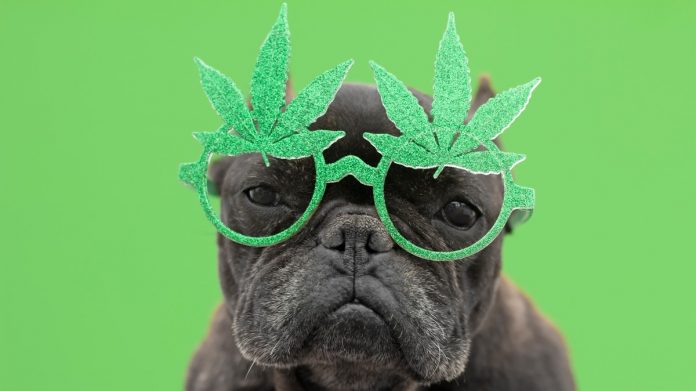In an ideal world, jokes are supposed to be just that — jokes. In an ideal world, you should be able to quip about that bad trip you had in some shady Goan shack, or that time a family member accidentally wolfed down the space cakes you had secretly stashed inside a steel tin on a kitchen shelf.
What can go wrong if we tweet about our outlandish, part-real, part-fictional scenarios? Or, to push the envelope even further, write about a “life-altering” experience that we had in our final year in college? In India, technically, not a lot. Technically.
The Narcotic Drugs and Psychotropic Substances Act (NDPS) of 1985 prohibits the consumption, storage, and supply of cannabis or weed in India. There are a few states that make exceptions for the medical and scientific use of weed, but that’s about it. However, the NDPS Act makes no mention of getting into trouble for making drug jokes.
“If you are cracking a joke about weed or drugs, it should not attract criminal charges under any law or act, because it’s just a joke,” lawyer Advait Tamhankar, who was part of the legal team of Arbaaz Seth Merchantt, a co-accused in the infamous Aryan Khan (non) drug case, told VICE. “There must be supporting evidence for the cops to even begin an investigation.”
Do Indian comics censor their jokes fearing an arrest or backlash? Rohan Joshi, a standup comic, told VICE that misconstruing a drug joke as being an admission of guilt defeats the purpose of comedy.
“I’ve seen a lot of comics do material about weed and drugs on stage,” he said. “I think joking about a subject is different from admitting to doing it. Also, comedy is an art where part of the fun is making a false story seem real for the sake of entertainment. [If I make a] joke about death, that is not a confession of murder.”
Tamhankar cited the Tofan Singh v State of Tamil Nadu judgment to explain that even statements given by the accused to investigating officers from the Narcotics Control Bureau (NCB, a nodal agency under the federal government for investigating drug-related cases) will remain inadmissible as evidence, let alone statements or jokes made online, as the accused was arrested based on statements made solely to the NCB. So, jokes, Tamhankar explained, much like the statements made to NCB officers, will come under the ambit of “extrajudicial statements.” Put simply, if the cops want to charge you, they better have more than just those “up to 280 characters” that you typed online. They need solid evidence to justify a charge.
Does this then mean that the burden of proof shifts to the cops to prove your guilt, if any? “The cops need some supporting evidence in the court to make the case for investigation,” Tamhankar said. “So, if you [uploaded] a picture of yourself smoking and [joked about it being a doob], then the burden of proof shifts to you to prove it was just a tobacco cigarette and not weed or any other illegal substance.”
He added that even Sections 35 and 54 of the NDPS Act mention that once the investigating agencies have been able to establish an initial case against you, the burden to prove your innocence falls solely on you.
In some jurisdictions, however, even the mention of weed on your phone can get you in trouble. In Bengaluru, a city in the Karnataka state in south India, cops received flak on social media, earlier this year, for arbitrarily stopping motorists and searching for words like “pot” and “ganja” on their mobile phones. The Police Commissioner in the Bengaluru police later withdrew the move, after facing widespread criticism.
“Cops in India, technically, have the power to search anyone’s phone if they have ‘reasonable suspicion’ to do so but, again, it won’t be [admissible] in court, if there is no supporting evidence,” said Tamhankar. “If they search your phone, [referring to me] for instance, they will obviously find those words because you’ve written this article. But once you prove that it was purely for the purposes of the article, there can be no case against you.”
However, Tamhankar added that proving that what you tweeted or said online was just a joke, is in itself excruciatingly “ugly” and can be a long drawn-out process.
Comedian Joshi said that comics too have reached a place where there is a reluctance to speak on issues that might be considered taboo. “The sad fact is that the legal system, as it is currently set up, makes it far easier to screw somebody over for speaking their mind than it does for defending a person’s right to [free] speech.”
So make that joke, it seems, but bear in mind the risks. If this sounds like fertile grounds for self-censorship, then, yes, you’re on the right track. “In western countries, the [legal] process is faster, because they exercise freedom of speech on almost a daily basis. But, in India, if you get out of the case, the trauma that you would have suffered will be irreparable,” Tamhankar added. “Jail is supposed to be a place for criminals, not for [those who make] jokes.”
Follow Arman on Twitter and Instagram.
VICE India in no way endorses the illegal use of marijuana or other narcotics. The above content is intended for entertainment and informational purposes only, and is not meant to propagate the use of any illegal substance. See Terms of Use for more.
By signing up, you agree to the Terms of Use and Privacy Policy & to receive electronic communications from Vice Media Group, which may include marketing promotions, advertisements and sponsored content.






